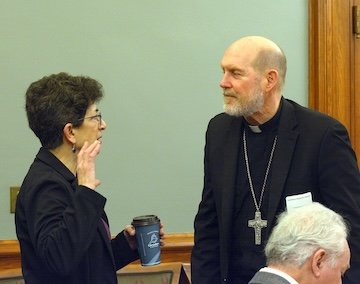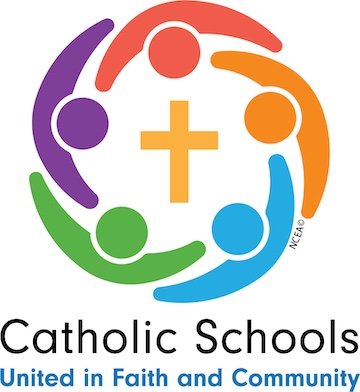Bishops ask for end to government shutdown
In the midst of the federal government shutdown, Archbishop Timothy P. Broglio, president of the U.S. Conference of Catholic Bishops (USCCB), has issued a plea for lawmakers and the Administration to work in a bipartisan way to ensure funding of lifesaving programs and an end to the government shutdown.
The U.S. bishops are deeply alarmed that essential programs that support the common good, such as the Supplemental Nutrition Assistance Program (SNAP), are being interrupted. “This would be catastrophic for families and individuals who rely on SNAP to put food on the table and places the burdens of this shutdown most heavily on the poor and vulnerable of our nation, who are the least able to move forward. This consequence is unjust and unacceptable. The U.S. bishops have consistently advocated for public policies that support those in need,” said Archbishop Broglio.
As of this writing, the Administration and courts are arguing over whether SNAP benefits must be paid.
Webinar on H.R. 1 impacts to SNAP and Medicaid in Iowa
 The cuts to SNAP and Medicaid found in H.R. 1, the Big Beautiful Bill passed this summer, are accomplished in part by shifting significant costs and administration to the states. To learn more, you can join Common Good Iowa, DMARC, Iowa ACEs 360, Iowa Catholic Conference, Iowa Hunger Coalition and Save the Children Action Network for a Zoom briefing at 7 p.m. on Wednesday, Nov. 19. Sign up here.
The cuts to SNAP and Medicaid found in H.R. 1, the Big Beautiful Bill passed this summer, are accomplished in part by shifting significant costs and administration to the states. To learn more, you can join Common Good Iowa, DMARC, Iowa ACEs 360, Iowa Catholic Conference, Iowa Hunger Coalition and Save the Children Action Network for a Zoom briefing at 7 p.m. on Wednesday, Nov. 19. Sign up here.
There are conflicting reports in Iowa whether H.R. 1 cut off SNAP access for refugees as of Nov. 1.
Organization to connect advocates and families of the incarcerated
Restoring Iowa’s Citizens (RIC) is a new organization dedicated to networking Iowans who work with and care about incarcerated people. RIC plans to advocate for legislation that will improve prison, re-entry and/or probation conditions. Their organizing committee is made up of people involved in groups supporting incarcerated people, in addition to those on probation or parole and their loved ones. For more information email ricnetwork24@gmail.com.
Refugee resettlement must remain a safe and secure legal pathway
The Administration has announced that it will allow 7,500 refugees to be resettled over the next year. This is the lowest ceiling since the program was created by Congress in 1980.
At the start of this year, over 100,000 people had already undergone extensive screening by the U.S. government and were conditionally approved for refugee status in the United States, including vulnerable children and those seeking to reunify with family members. However, on the first day of his second term, President Trump signed an executive order indefinitely suspending refugee resettlement. Since then, very few refugees have been permitted to travel to the United States as exceptions to the executive order, largely consistent with recent presidential actions prioritizing Afrikaners from South Africa under Executive Order 14204.
“We cannot turn a blind eye to the disparate treatment of refugees currently taking place. As exemptions are considered, it is essential that they be applied consistently and without discrimination on the basis of race, religion, or national origin, in accordance with longstanding domestic and international norms. Resettlement tainted by the perception of unjust discrimination is contrary to Catholic teaching and quintessential American values, grounded in our Constitution and refugee laws, including the equality of every person from the moment of their creation by God,” said Bishop Mark J. Seitz, chairman of the USCCB Committee on Migration.
USCCB and CRS ask leaders to address climate change at COP30
As world leaders gather for the 30th annual United Nations Climate Change Conference (COP30), the bishop chairmen who lead committees of the USCCB that address climate policy were joined by the president and CEO of Catholic Relief Services (CRS) to call for urgent, courageous action to protect God’s creation and people.
Archbishop Borys Gudziak, Bishop A. Elias Zaidan, and Mr. Sean Callahan’s statement said, “This year’s COP30 convenes while the Catholic Church celebrates the Jubilee Year of Hope. Pope Leo XIV called for the participants of COP30 to ‘listen to the cry of the Earth and the cry of the poor, families, indigenous peoples, involuntary migrants and believers throughout the world.’ This jubilee year is a sacred opportunity to restore relationships and renew creation at a time when the gift of life is under grave threat.”

© 2026 Iowa Catholic Conference.



